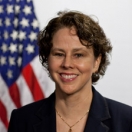
As 2015 comes to an end, it is time for us to reflect on the events of the last year and to look toward the work still ahead of us. In that spirit, I’m pleased to share the final report for the 2015 White House Conference on Aging that summarizes the work of this eventful year as well as the feedback we have received in the course of carrying it out.
In a year that marked the 50th anniversary of Medicare, Medicaid, and the Older Americans Act, as well as the 80th anniversary of Social Security, the White House Conference on Aging provided an opportunity to reflect on the importance of these programs, highlight new actions to support Americans as we age, and focus on the powerful role that technology can play in lives of seniors in the decade ahead.
The sixth White House Conference on Aging, which President Obama hosted on July 13, was informed by a year of pre-conference activities and conversations that allowed a broad range of stakeholders to provide substantial input. At the conference, the Administration announced a number of new public actions and initiatives across the government and across the country to help ensure Americans have increased opportunity and ability to retire with dignity; that older adults enjoy the fullest physical, mental, and social well-being; that older adults can maximize their independence and ability to age in place; and that elder abuse and financial exploitation is more fully recognized as a serious public health challenge and addressed accordingly and effectively.
While we accomplished a great deal, we recognize that there is much work still to do. Through a combination of listening sessions, breakout groups, watch parties, regional and topical forums, and written feedback, the White House heard from thousands of Americans about the issues most important to them regarding our aging population. A better informed vision for aging in America emerged from this dialogue: one that recognizes the possibilities, rather than the limitations of aging, so that every American can enjoy a longer, better, more active, and independent life.
Thanks to all of you who engaged with us in this dialogue, shared personal stories, and made commitments to improve the lives of older Americans now and in the future. We look forward to the combined efforts of all of us -- working together in both the public and private sectors – to continue the work to support healthy, active, independent aging in America.



